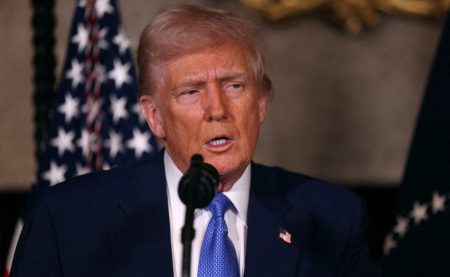The boxing world was abuzz with Tyson Fury’s sudden retirement announcement in early January 2024, casting a shadow over the much-anticipated clash with fellow British heavyweight Anthony Joshua. Fury’s decision, delivered via a concise social media post, came on the heels of his second consecutive defeat at the hands of Oleksandr Usyk. The first encounter, a closely contested points decision in May, saw Fury relinquish his undisputed heavyweight title and four championship belts. The rematch, held just months later, resulted in another Usyk victory, marking Fury’s second professional loss and solidifying Usyk’s dominance in the division.
For years, the boxing community had eagerly awaited a showdown between Fury and Joshua, two titans of the British heavyweight scene. The timing seemed opportune: both fighters were coming off losses, Joshua having been defeated twice by Usyk, most recently in September. With their paths converging in a shared experience of defeat, a clash between these two former champions appeared to be a natural progression, offering a chance for redemption and a legacy-defining moment. The prospect of this all-British heavyweight bout held immense appeal, promising fireworks and a significant boost to the sport.
Eddie Hearn, Joshua’s promoter, shed light on the delicate balance required to bring this fight to fruition. Speaking on The Ariel Helwani Show, Hearn emphasized the urgency of the situation, stating that Fury would need to reverse his retirement decision within weeks for the fight to happen next. Joshua, eager to continue his boxing journey, had plans to fight twice in 2024, with bouts scheduled for the summer and the end of the year. Hearn’s timeline underscored the time-sensitive nature of the potential matchup, indicating that any further delay on Fury’s part would jeopardize the possibility of the fight happening in the near future.
The uncertainty surrounding Fury’s future plans added a layer of complexity to the situation. His retirement announcement, while definitive in tone, left room for speculation. Historically, Fury has shown a penchant for dramatic pronouncements, occasionally reversing course on previous statements. This precedent fueled hope among fans and within the boxing fraternity that the allure of a clash with Joshua might be enough to entice him back into the ring. The magnitude of this potential fight, both financially and in terms of its historical significance, loomed large, making the possibility of Fury’s return a tantalizing prospect.
The stakes were high for both fighters. For Fury, a victory over Joshua would offer a path back to the summit of the heavyweight division and a chance to erase the sting of his losses to Usyk. It would also cement his legacy as one of the greatest heavyweights of his era. For Joshua, a win against Fury would be a career-defining moment, offering redemption for his previous defeats and solidifying his status as a top contender. The clash represented a pivotal crossroads for both fighters, a chance to reshape their narratives and solidify their place within the annals of boxing history.
The potential Fury-Joshua bout carried significant implications for the heavyweight landscape. A victory for either fighter would ripple through the division, influencing future matchups and potentially altering the trajectory of the heavyweight title picture. The fight represented a significant moment in British boxing history, a clash between two of the country’s most prominent sporting figures. The anticipation surrounding this potential encounter underscored its immense appeal and highlighted the crucial role that Fury’s decision would play in shaping the future of the heavyweight division.














